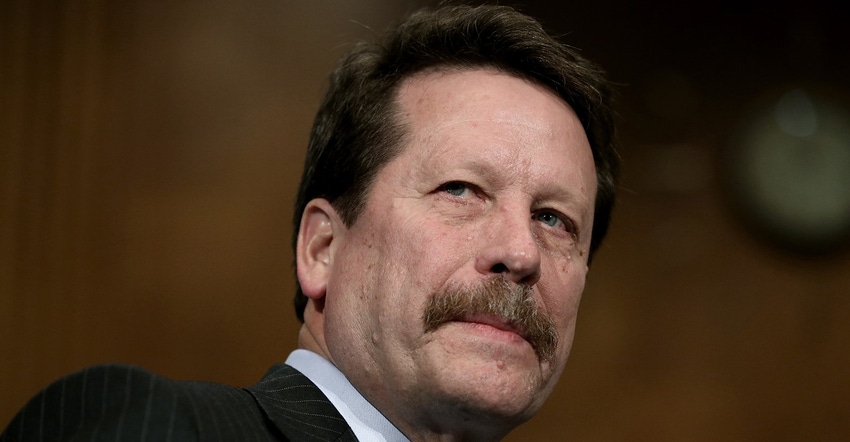
The U.S. Senate confirmed Dr. Robert Califf to serve as commissioner of the Food and Drug Administration. Califf previously served in the position during the Obama administration, however, had faced some concerns from Democrat members for his ties with industry.
At the end of the Trump administration, USDA and FDA signed a Memorandum of Understanding on how to regulate genetically engineered livestock. Secretary of Agriculture Tom Vilsack says when he came into office USDA thought it had the work done with a signed MOU, but FDA didn’t believe those who did sign it at the Human Health Services had the authority to do so. In testifying before the House Agriculture Committee in January, Vilsack committed to working with the FDA commissioner as soon as one was confirmed to discuss the status of that MOU.
Vilsack also says he doesn’t believe FDA should be regulating feed additives, such as those known to reduce methane emissions, as pharmaceuticals, saying regulations there also need modernizing.
American Feed Industry Association President and CEO Constance Cullman says, “Our industry has been grappling with regulations that have not kept pace with modern science on animal nutrition, sidelining innovative feed ingredients that could help livestock fully reach their genetic potential and America to achieve its climate goals. This issue is starting to draw the ire of lawmakers, as it has put U.S. animal food products at a competitive disadvantage globally, and we hope is one in which we can work together with Dr. Califf and his staff.”
Another important issue at FDA is the handling of the labeling and definition of dairy terms. Michael Dykes, D.V.M., president and CEO of the International Dairy Foods Association, encouraged Califf to put the “F” back in the FDA by focusing attention on making FDA more efficient and nimbler for consumers and more responsive to the feedback of industry.
“The FDA is one of the most important regulatory agencies within the federal government because it ensures the safety and security of our nation’s food supply. For decades, FDA leaders have promised to modernize food standards while allowing food makers more flexibility for innovation in response to shifting consumer demands and trends,” Dykes said. “However, food standards have become more complex and onerous, the FDA’s response times on pending rules and petitions has increased and promises to streamline rulemaking have not been kept. IDFA and our member companies are hopeful for a more collaborative relationship with FDA on matters of food safety, food standards, labeling, and nutrition and health.”
“As a cardiologist, Dr. Califf has a keen understanding of the impact of diet on human health,” Dykes adds. “We hope that as FDA continues to refine its regulatory positions, FDA experts not only recognize dairy’s crucial role in a healthy diet beginning at a very young age but also allow research showing the benefits of dairy fat to be considered in federal nutrition guidance. No other type of food or beverage provides the range and density of nutrients that dairy contributes to the American diet.”
Dana Brooks, president and CEO of the Pet Food Institute, noted the importance of the agency taking a science-based approach to food safety under Califf’s oversight.
“Food safety is the top priority for PFI members as they work to provide complete and balanced nutrition for pets in the United States and around the world,” says Brooks. “This means that the FDA is an important partner to pet food makers, particularly as the agency continues surveillance and compliance efforts under the Food Safety Modernization Act. We urge FDA to work with its stakeholders and maintain the application of sound and science-driven policies, while ensuring the food is safe for pets.”
About the Author(s)
You May Also Like






